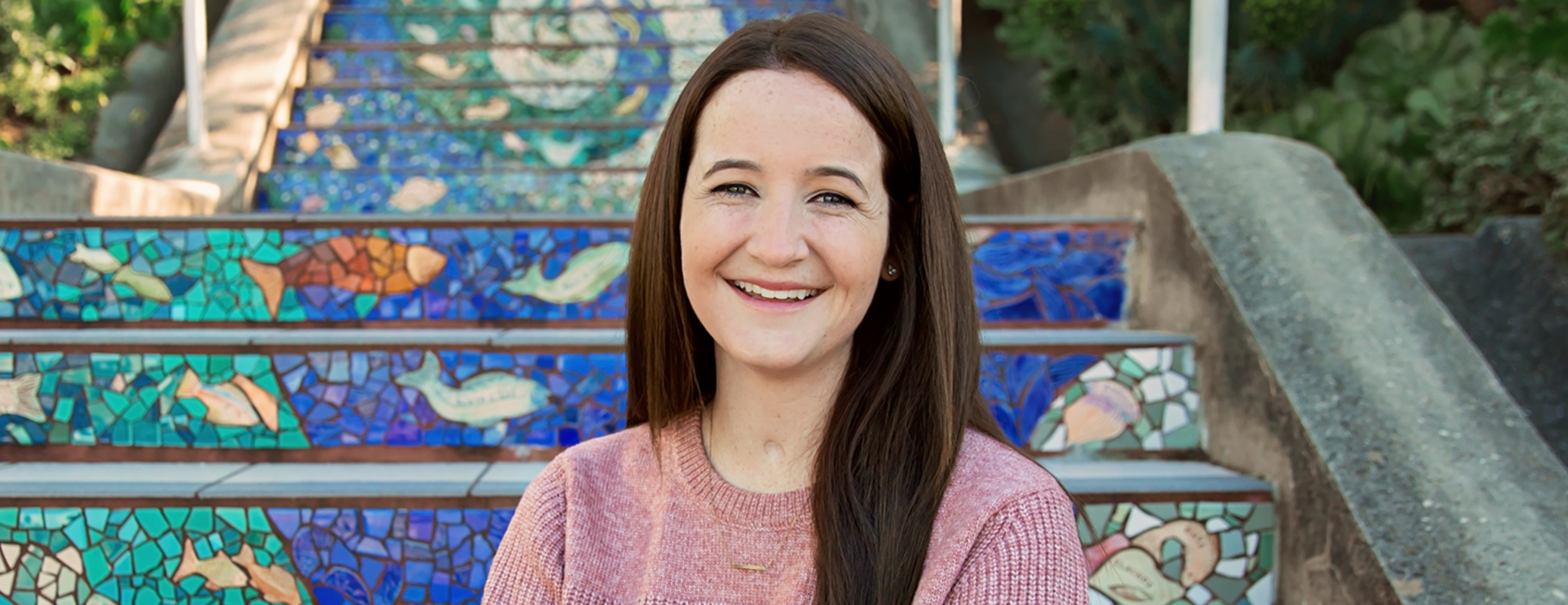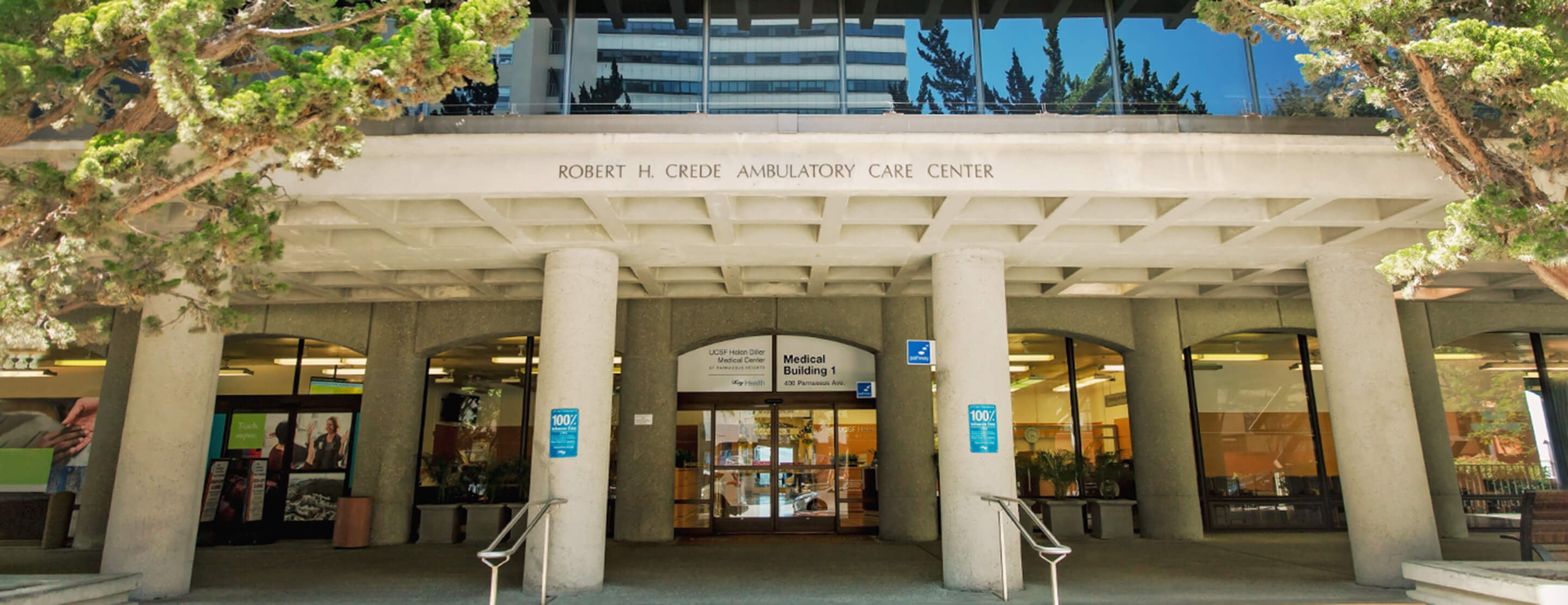In 2010, UCSF patient Clare Dowling, then 19 years old, received a double lung transplant – and a new lease on life. Her recovery was tough, requiring her to relearn how to breathe and walk. But she persevered, leaving her wheelchair behind, continuing her studies and eventually graduating from the University of California, Santa Barbara.

Clare Dowling: Rebuilding a Life After Surgery
Now Dowling lives in San Francisco. Her apartment, she says, is just a "hop, skip and a jump" from UCSF, where she returns every six weeks to receive intravenous immune globulin (IVIg) treatment. "I'm hoping that goes away with time," she says. "But I think, at this point, it's 2019, I'm nine years out of transplant, this is kind of par for the course. So it's a small price to pay."
How did you feel when you heard you were experiencing some side effects from the transplant?
There are a lot of factors that drive me to take the best care of myself possible, and one of them, of course, is living a long, full life and honoring my donor. Rejection is one of those things that really terrifies me because it's something that causes transplant recipients to die eventually. So I get a bit of anxiety anytime there's any inkling of that being said or thrown around. I had a lot of difficulty going into transplant and out of transplant, but I think since my transplant, I've had things go really well. I wasn't excited about [the rejection], but you take things in stride, and here we are, and it's not too much of a big deal. Things happen, and I'm dealing with it.
Has it been difficult to balance living a full life as a young person while still having to plan around your health?
Absolutely. I'm thankful for the gift I've been given, and without my transplant, I wouldn't be here, so I'm really happy to be alive and with my family and friends. But when I first got out of transplant, I was at home with my parents, just trying to get my life back. I had to relearn how to walk, I was in a wheelchair for a long time, so there were some huge hurdles to get over initially. And now at this point, I would say I think I'm used to what my new normal is.
I think that's one of the things that has kind of hit me hard in the last couple years, realizing that I have to work a full-time job and if I don't work full time, I don't get insurance, and all of that is very expensive, and at the same time, you're trying your best just to stay healthy and work out. There's just a lot to balance, and at the same time, you're trying to grow in your career and also do things on your bucket list, because I've been given this second chance at life, [and] I don't want to just live my life doing the grind, you know?
I've gone to the ragged edge, and now I want to travel, I want to do all of these things. But at the same time, the reality of day-to-day life hits you and you're like, "Well, I do have to work because I need health insurance, and I do have to kind of maintain my health as best as possible," and all those things, it's a lot of work. Taking care of my body is a job in itself.
Balancing those – work life, personal life and my health – it's a lot. I'm doing my best to navigate through that, and my best is all I can do. I think I do a pretty good job, but I think it's always something that I'm working on.
How has the UCSF team supported you over the years?
I honestly don't know where I'd be without UCSF. The IVIg group that helps me there has been amazing, and everyone's really nice. The transplant team – I'm in constant communication with them. I feel like I chat with them like every couple of weeks. I can be forgetful sometimes, so sometimes I call them multiple times about the same thing, and they return my calls and say, "Yep," and answer my question again. I don't know what I'd do without them. The whole UCSF team has been so integral to maintaining my health and my quality of life.
During your recovery, what are some coping mechanisms that you've turned to?
Initially, it was hard to escape the reality of my circumstances. When I was in a wheelchair, or on these braces and crutches for a while that helped me walk, I really felt like my life had completely done a one-eighty.
For me, I have to move forward in some way, so I went back to school and I started doing things that I loved, like riding horses. Or spending time with friends, talking with them about things that weren't my health. That's what was really important for me. So much of my life for more than a year was just about what my blood pressure was, what my oxygen stats were; so focusing on something aside from my health and my future and my goals was important.
Now I'm working, and I'm always looking ahead: What is my next vacation going to be, how can I work towards going on a trip with my family or friends, or how can I work towards improving in my work or developing a new hobby? [I'm] doing things that aren't all focused on my health – which is what I think everyone's goal is at UCSF, [to] live your life, and I think this helped me move from just being the patient. It's like, OK, now I'm used to taking my medications, I'm used to the grind of, on Sunday night, setting out my medications for the week, and now I'm getting my blood work [regularly].... It becomes less of a big deal after a while, and you can think about, Well, what am I going to do next, now that I have this new life?
What are you looking forward to?
Again, transplant has given me such a new lease on life that things I really care about are spending time with my family, being the maid of honor in my sister's wedding this year, and my friend's wedding, and seeing the world. That's really important to me: experiencing different cultures, learning new things, just being with the people I love. That's what I'm looking forward to, I think: always becoming a better version of me, a happier version of me. Just living my best life. That's really all I care about. Eating great food, with my favorite people. Not asking for much.







